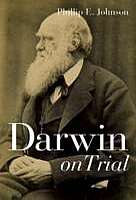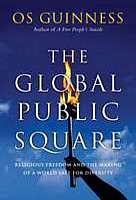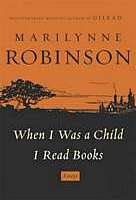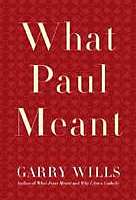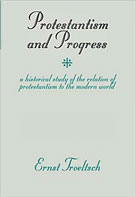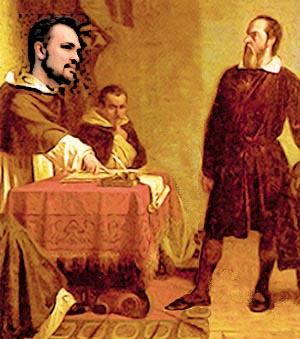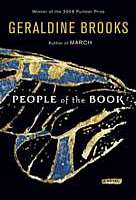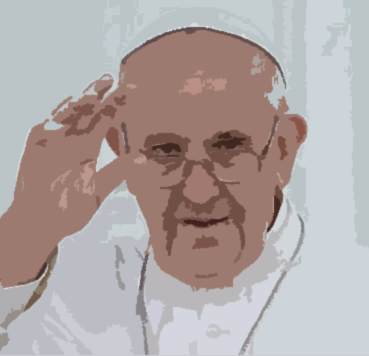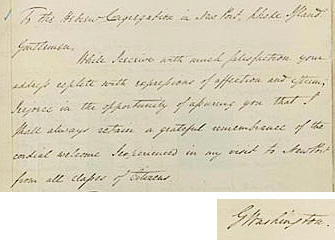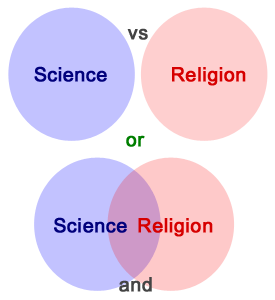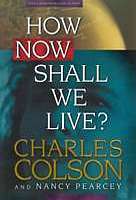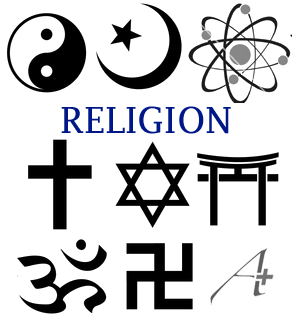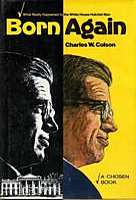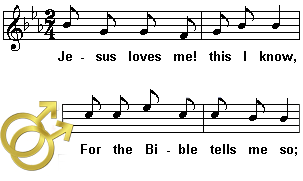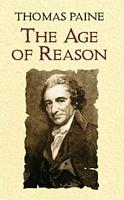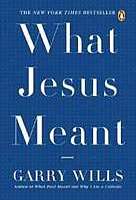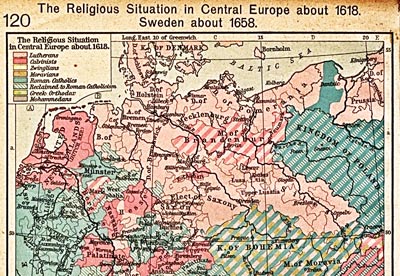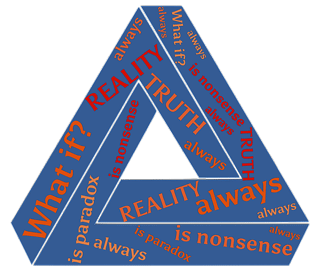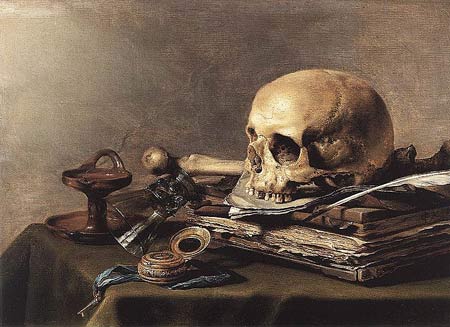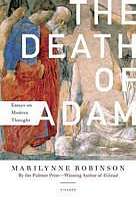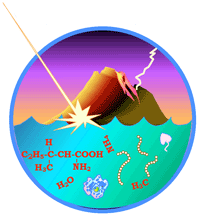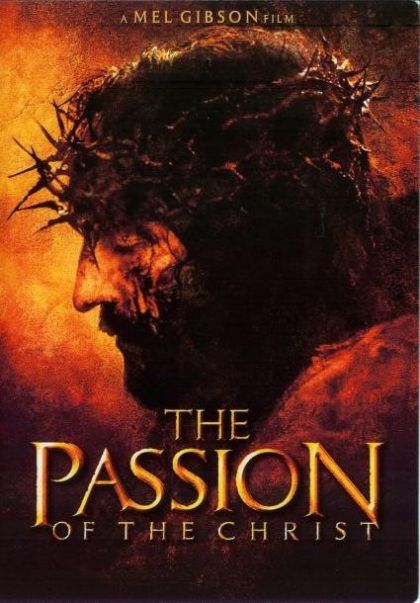 Religion
Religion
Wide of the Mark
Johnson's book provides a perspective on creationist thinking and argumentation. It demonstrates that attorneys are trained to advocate, to argue, not to look hard for the best understanding.
Reforming progress
Calvinist philosophy professor Theodore Plantinga suggests that 'post-Enlightenment' Protestants, so as to act progressively or correctly in support of individual liberties, should embrace the Protestant faith, building their responses to the world on the foundation of Calvin and Luther, rather than embrace 'short-sighted' Enlightenment ideas. How does Plantinga justify his view that the societal direction of Western civilization can be improved by eschewing the Enlightenment influence and replacing it with the Reformational Christian outlook of the 16th century?
Apocalyptic politics
Donald Trump's latest international provocation, the decision to move the U.S. embassy in Israel to Jerusalem, marches Trump-backing evangelicals a step closer to their deeply held desire for the fulfillment of Biblical end-times prophecies. A recent CNN article by Diana Bass suggests that, for many evangelicals, Jerusalem is about prophecy, not politics. I would partially agree: It is about prophecy, but it is also explicitly about politics.

Galaxy NGC 1300. Attrib: NASA, modified, PD-USGOV.
Evolution + Intelligent Design = 42
Are evolutionary biology, intelligent design and the existence of God compatible? A reasonable case can be made for it, particularly if one relaxes their culture warrior muscles for a moment, and considers the argument that: science offers little tangible evidence of abiogenesis, the spontaneous creation of life from inanimate material, leaving room for God as the creator of the initial life forms; that God could just as well have created the remainder of life via the slow mechanism of biological evolution. This is not a new argument, and finds a much larger audience than the shouters like to acknowledge.
Halting steps to soul freedom
Os Guinness' The Global Public Square oscillates between a Utopian call for a universal human rights and a sectarian application of those rights, as if the author was of two minds, wrestling with the views of Roger Williams and James Dobson.
The capacious heart of Marilynne Robinson
Every few odd years Marilynne Robinson has produced a book of essays, notably Absence of Mind and The Death of Adam. The latest arrival is When I was a Child I Read Books: Essays. The best of Robinson shines in these latest essays: In them she lays out her vision of the American Dream, celebrating the strengths of the American way of life, marked by its liberality (individual freedom), sense of community, and generosity, each informed by a non-sectarian respect for the soul.
Paul, simply
In What Paul Meant, Garry Wills translates the authentic Pauline letters himself, and combines a careful translation of the koiné Greek with modern scholarship to suggest that Paul, who is the modern intellectual's favorite whipping boy as the man who distorted Jesus' message, is in fact a faithful interpreter of the Jesus of the Gospels.
The origins of modern society
Ernst Troeltsch was a fin de siècle Protestant theologian who wrote Protestantism and Progress: A Historical Study of Protestantism and the Modern World. This work, along with his friend Max Weber's The Protestant Ethic and the Spirit of Capitalism, both written just before World War I, are reasoned historical treatments of the influence of Protestantism on the perceived and potential progress of Western society. They provide effective contrast to the often simplistic and one-sided efforts by Protestant Evangelicals to do the same, such as Francis Schaeffer's How Should We Then Live?
My favorite inquisitor
 Since all other than orthodox is heretical by definition, it is thereby 'Bad Religion.' Ross, a practicing Catholic, argues that Christianity is a highly paradoxical religion whose orthodox views provide a necessary and hard won synthetic narrative providing the one true way. The argument is not very compelling, particularly as it contains the usual demagogic description of American society as corrupted, long in decline, whose only salvation is embracing his orthodoxy. (Yawn ... the ancient clarion call of the entrenched and the reactionary.)
Since all other than orthodox is heretical by definition, it is thereby 'Bad Religion.' Ross, a practicing Catholic, argues that Christianity is a highly paradoxical religion whose orthodox views provide a necessary and hard won synthetic narrative providing the one true way. The argument is not very compelling, particularly as it contains the usual demagogic description of American society as corrupted, long in decline, whose only salvation is embracing his orthodoxy. (Yawn ... the ancient clarion call of the entrenched and the reactionary.)Convivencia is a state of mind
Geraldine Brook's historical novel, People of the Book, tells the fascinating and uplifting story of how people of different faiths created and protected a Jewish book of worship known as the Sarajevo Haggadah for over five hundred years, a period marked by much religious conflict.
To the power of love
Pope Francis, recently elected, has my attention and admiration. I must admit to having been uninterested in those men who have occupied the papacy during my lifetime; I am not a Catholic, nor particularly religious for that matter. But Francis seems different: He has humbly eschewed the pomp of the office, worries aloud and often about the poor, opens the door to all, emphasizes a loving attitude towards homosexuals (contrary to so many fundamentalists of various religions), openly questions the excesses of the marketplace, has recently taken steps to deal more honestly with the pedophilia issues within his Church, and emphasizes much more the mystery of God rather than the rigid confines of orthodoxy and doctrine.
To the Hebrew congregation in Newport Rhode Island
A remarkable and short exchange of letters between George Washington and Moses Seixas in 1790 beautifully illuminates the Constitution's 1st Amendment protections for religious freedom as intended by the founders, written as the states were still ratifying the proposed Bill of Rights.Can religion and science be reconciled?
"Adherents of religion and science too often want to own the unknown"
Victor Stenger, a physicist who has written extensively about religion and science, asserts emphatically that science and religion cannot be reconciled, and at best merely coexist in parallel thought universes. His primary argument is that faith requires no evidence and science does. Alfred North Whitehead, in his essay Religion and Science, emphasizes the commonality of change in both science and religion, and that both are more plastic than the controversialists from either camp would acknowledge. Is Stenger one of those controversialists? Can religion and science be reconciled?
The ghost of Schaeffer past
By the time Charles Colson got out of prison in the mid-70's, having been convicted for acts of political skullduggery during the Watergate scandal, he had converted to Evangelical Christianity. How Now Shall We Live was his best-seller, an homage to Francis Schaeffer's view of Western history. Schaeffer was a presuppositional millennialist who in the 1970's left the quiet life of a Christian intellectual to help lead the evangelicals to the heights of political activism we see today in the U.S.
Simple thoughts on religion
Just because you believe something to be true doesn't mean it is true.
Conversely, just because something cannot be proven doesn't mean it isn't true.
Hearts and minds
During his years as a Republican political operative, Charles Colson prominently displayed an old Marine Corp saying in his home: 'When you’ve got ’em by the balls, their hearts and minds will follow.' Colson described those years and the hard crash that followed in his book Born Again as a mid-life autobiography precipitated by a mid-life crisis. After his role as a self-described 'hatchet man' for Nixon White House was slowly exposed during the Watergate scandal, he converted to Evangelical Christianity, and after being convicted of obstruction of justice, he spent some time in prison.
What to believe?
Confusion is the only rational outcome of the questions raised by religion. How can one be certain that God exists or certain that God does not exist, or if God exists, what form God takes? To insist that any religion has the unequivocal answers to these questions is to be blinded by the fear of uncertainty and the fear of death. That is not to say that the religious impulse is a false one. What is the purpose of life? How do we live a good life, a meaningful life, a fulfilled life?The Bible Tells Me So, continued (3)
A reader commented on my second post regarding the Bible and homosexuality:Do I make [GLBT people] feel unloved? Well if you are a sincere Christian, then no, setting out intentionally to make them feel unloved is not an option. As you note, love is a key goal in Jesus teaching, whether one believes that homosexual sex is sinful or not.
This is a loving response. It probably wouldn't need to be mentioned, were there not so many who profess to be Christians who are openly and markedly unloving in their response to that community. Yet the kind of charity the reader goes on to describe is limited. See my response in defense of a more supportive view.The Bible Tells Me So, continued
A reader responded to my article The Bible Tells Me So, a short discussion of Matthew Vine's recent video about the Bible and homosexuality, arguing that Vine's interpretation was incorrect, and that Jesus proscribed homosexuality. See my defense of a more loving interpretation.
The Bible tells me so
Matthew Vines, a young gay Christian, has made a serious argument that the Bible favors loving relationships for people of all sexual orientations, not just heterosexuals.
Reasoning with Thomas Paine
Thomas Paine was perhaps the most persuasive of those proponents of revolution in the American Colonies of Great Britain, and well after his influential pamphlet Common Sense he continued to write about 'revolting' things (tongue well in cheek) in the following period of the French Revolution. His pamphlet Age of Reason is a fiercely argued defense of freedom of religion, an argument against organized religion and an argument for deism, written between 1794 and 1797 from Revolutionary France.
Jesus, simply
Garry Wills, who is a believing Catholic, attempts to extricate the Jesus of the New Testament from the 1,700 year edifice of organized Christianity by doing his own translation of the koiné, or marketplace Greek ,in which the New Testament was originally written.
Is religious tolerance religious freedom?
 The ensuing religious fragmentation of Western Christendom following the advent of the Reformation created fissures in the fabric of European society so large that, after a century of warfare, borne by the exhaustion of bitter hatred and its accompanying destructiveness, the only option left for a more peaceful existence was the grudging co-existence of groups with religious differences.
The ensuing religious fragmentation of Western Christendom following the advent of the Reformation created fissures in the fabric of European society so large that, after a century of warfare, borne by the exhaustion of bitter hatred and its accompanying destructiveness, the only option left for a more peaceful existence was the grudging co-existence of groups with religious differences. Absolute truth is a tough nut
Paul Abramson, an old friend, wrote a Defense of Creationism, or more specifically, a defense of Young Creationism, which posits that the universe was created around 6,000 years ago, based on a literal interpretation of the book of Genesis in the Old Testament. I read this article out of curiosity for Paul's take on it; Paul is the editor of a website dedicated to Young Creationism. In the endless churn over biological evolution, religious opponents often emphasize blind faith in an absolute view, while scientific advocates emphasize the skeptical application of the scientific method to mold necessarily incomplete theories. The Defense of Creationism is a good example of the former.Wandering Mennonites
The Blue Mountains of China is compelling and candid historical novel that tells the story of a set of Mennonite immigrations from the Ukraine SSR to Siberia, Canada, Paraguay, and briefly, China. The novel begins with a series of loosely connected chapters which move forward in time, and focus on i
Hope against hope: Immortality and illusion
Shortly after my father-in-law Burt died, Christopher Hitchens, the contrarian and atheist, announced that he had been diagnosed with an incurable disease. There was a good deal of response in the media , much of it around the idea that Hitchens subscribed to no hopeful or immortal view of his afterlife. Many asked: should one pray for him, given that he did not believe in any religion? Should he go against his life-long atheism and embrace the "life-enhancing illusion" of the soul's immortality before he dies?The Mosque near Ground Zero, continued – Britt Towery
Britt Towery weighs in on the mosque near Ground Zero, in his post entitled All religions subject to U.S. Constitution. Here is a highlight : The center is not at Ground Zero but two blocks away. It is not designed as a local mosque but to serve the wider community. It also is meant to improve interfaith relationships among people of every faith. In a nutshell it is promoting tolerance.
The Mosque near Ground Zero, continued – Leonard Pitts
Leonard Pitts asks:
... One wonders how far from Ground Zero ... [is it] proper for Muslims to build? A mile? Twenty? A hundred? Or maybe nowhere within the borders of these United States.
The Mosque near Ground Zero – Uniting Americans Against Terrorism
 "Build the mosque near ground zero! Families of the Christian and Muslim victims can share common grief, and Christians and Muslims, together as Americans, can show common cause in the fight against global terrorism." -Thomas A. Wiebe, The Oregonian, Short Takes, Aug 1, 2010
"Build the mosque near ground zero! Families of the Christian and Muslim victims can share common grief, and Christians and Muslims, together as Americans, can show common cause in the fight against global terrorism." -Thomas A. Wiebe, The Oregonian, Short Takes, Aug 1, 2010The Bard of Wasilla
Sarah Palin is now the self-styled Shakespeare of Twitter, and has stimulated a twitter-based exchange of wit; however, the humor only served to obscure the fear-mongering of Palin's initial message.
Modern Jeremiad
Marilynne Robinson's The Death of Adam: Essays on Modern Thought could just as well have been entitled 'Modern Jeremiad', as its tone is often bleak, accusatory, and angry, sure that the world, and America in particular, has taken a set of massively wrong turns in terms of both its thinking and its behavior. This is a book that marks modern thought as empty of spiritual meaning, and continually contrasts secular (mostly failed) ideas and behaviors with Christianity's spirituality and ability to offer meaning and moral structure in a modern human's life. The essays are wildly uneven, and the variation in quality is quite wide; most are readable, but several are nigh on unreadable. If you were to read this book from back to front, you would, roughly speaking, be reading from the best essays to the worst.
Abiogenesis or Creation?
Abiogenesis currently amounts to little more than scientific parlor talk, which leaves us free to choose an explanation of the origin of life that is most personally satisifying.I think that life was more likely created by God than having arisen spontaneously on earth. I have read a number of scientific arguments regarding the origin of life. They differ markedly in some aspects, but they are consistent in arguing that life on earth is massively complex and a massive amount of time would be necessary for life to arise from non-life (formation of the first self-replicating cell, then the evolution of life to its current forms). Many of abiogenesis proponents suggest that the current estimate of the earth's age, 4.5 billion years, is not sufficient time for life to have arisen spontaneously! At any rate . . .
Movie Review, Title The Passion Of The Christ, Studio 20th Century Fox, Rating 1.5,
The goriest story ever told
The Passion of the Christ is a violent, unrelenting cascade of gore and violence against one man, Jesus Christ, and is one of the most offensive films I have personally seen. Many films have depicted Christ, but none in memory steeped his last few days on earth in gratuitous and pornographic violence while de-emphasizing the purpose of the suffering.


 Most men are not curious to know; nay, some make no bones about saying, 'What does it matter whether we know this or not'?
Most men are not curious to know; nay, some make no bones about saying, 'What does it matter whether we know this or not'? READING
READING ARCHIVES
ARCHIVES CATEGORIES
CATEGORIES QUOTES
QUOTES